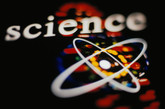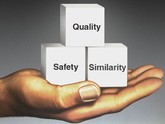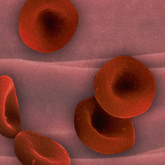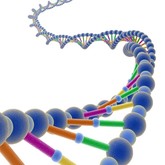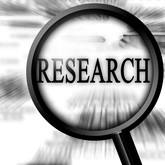Biosimilars
Cipla launches first etanercept ‘similar biologic’ in India
India-based generics manufacturer Cipla announced on 17 April 2013 the launch of its ‘similar biologic’ product Etacept, the first ‘similar biologic’ of etanercept in India.
Research on clinical trial issues for biosimilars
Period: September to December 2012
In order to demonstrate comparability between a biosimilar and its reference product, EMA recommends that the clinical trial should make it possible to detect a difference between the biosimilar and reference product. In most cases, this means that a two-arm clinical trial design (reference biological and biosimilar) in a small group of homogenous patients may be used. If the two arms of the trial produce similar results, then the biosimilar can be approved.
Quality, similarity and safety of biosimilars
An abbreviated pathway for the approval of biosimilars was implemented in the EU in 2005. Despite biosimilars being available in Europe for more than seven years, physicians still have concerns about the use of biosimilars. Members and experts of the Working Party on Similar Biologic Medicinal Products of the European Medicines Agency (EMA) highlight what physicians need to know to make informed and appropriate treatment choices for their patients [1].
Lonza not backing out on biosimilars
Lonza has made a statement refuting reports that the Switzerland-based company was considering backing out of its biosimilars joint venture with Israeli generics giant Teva Pharmaceutical Industries (Teva).
Phase I/IIb trial of CT-P6 shows comparability to trastuzumab
Results of a phase I/IIb trial for South Korean biotechnology company Celltrion’s biosimilar candidate CT‑P6 were presented at the 13th St Gallen International Breast Cancer Conference held in St Gallen, Switzerland, on 13–16 March 2013. The results demonstrated the comparable pharmacokinetics and safety of CT-P6 to the reference drug.
Biosimilars applications under review by EMA – 2013 Q1
Last update: 12 April 2013
The European Medicines Agency (EMA) is the body responsible for approval of biosimilars within the EU. A legal framework for approving biosimilars was established in 2003. Approval of biosimilars is based on an abbreviated registration process, which allows biosimilars manufacturers to provide a reduced package of information compared to originator drugs, provided they can prove ‘similarity’ to the originator or ‘reference drug’.
Lonza/Teva biosimilar pact in jeopardy
Switzerland-based API producer and custom manufacturing organization Lonza is reviewing whether it is still worth investing in its joint venture for biosimilars with Israeli generics giant Teva Pharmaceutical Industries (Teva).
Recall of anaemia drug highlights safety issues of NBCDs
US-based biotech firm Affymax announced on 24 February 2013 that it is recalling all lots of its red blood cell-stimulating medicine Omontys (peginesatide). This could have broader implications on how FDA evaluates follow-on non-biological complex drugs (NBCDs).
Amgen’s biosimilar plans
Amgen was one of the first companies to recognize the potential of modern biotechnology and this has made it the world’s largest independent biotechnology firm.
Research on biosimilars in anaemia and diabetes
Period: September to December 2012
The use of biological medicines has been life-changing for many patients suffering with anaemia and diabetes. With the expiration of patents on these biologicals the possibility of patients gaining access to lower cost biosimilar alternatives to these extremely effective, but costly, medicines becomes a real possibility.

